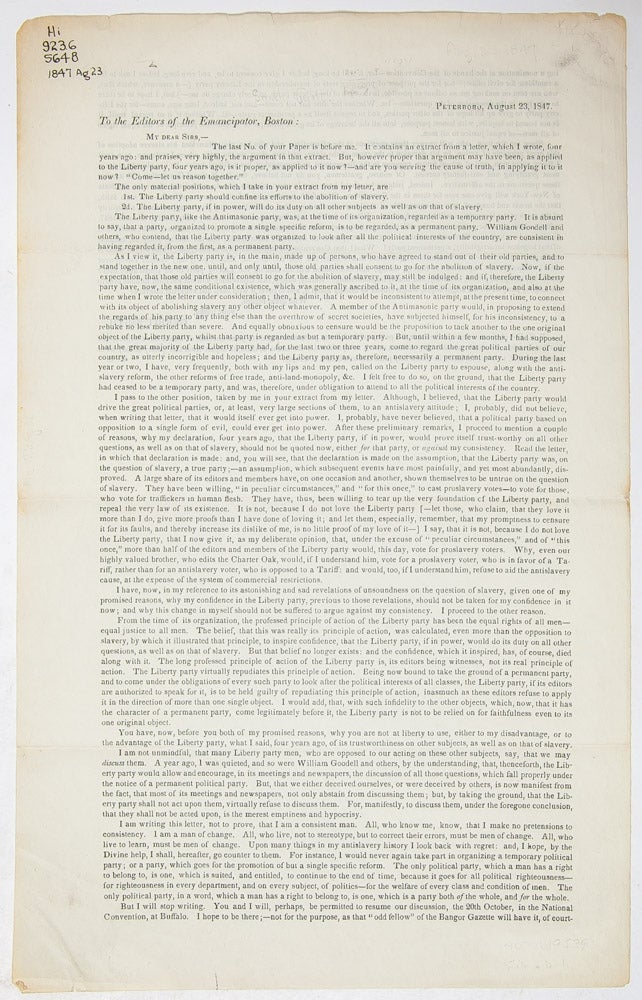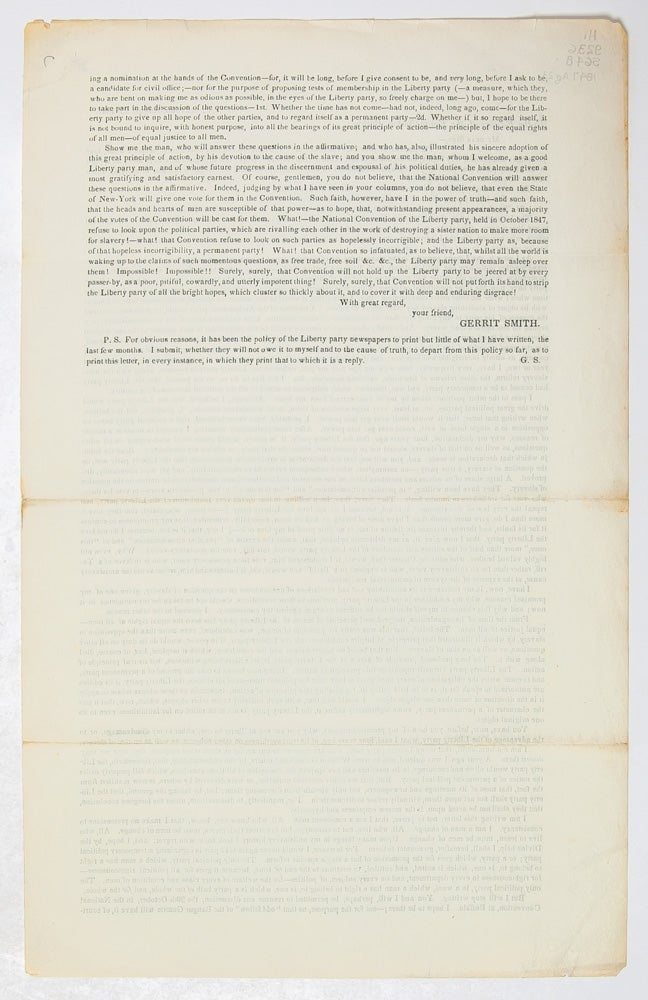To the Editors of The Emancipator, Boston
[Peterboro, NY]: [N.P.], August 23, 1847.


To the Editors of The Emancipator, Boston
[Peterboro, NY]: [N.P.], August 23, 1847. First edition. Broadside sheet measuring 12 x 7.75 inches and printed recto and verso. Later ink docketing to upper left corner. Faint toning along horizontal foldlines to verso (not apparent on recto) and minor chips to upper margin. A just about Fine copy of a scarce tract calling out the hypocrisy of contemporary media in its representation of the equality cause. OCLC reports only 6 surviving copies in institutions, with this the only example in trade.
A philanthropist, reformer, and cousin of the famed activist Elizabeth Cady Stanton, Gerrit Smith is best known for his anti-racist and abolitionist work. A close associate of William Lloyd Garrison and a financial backer of John Brown, he wrote numerous broadsides calling to the end of slavery, the purchase of land tracts to be provided to freed people, and the expansion of Black Americans' rights. The present broadside is an example of such work, calling out the hypocrisy of the publication The Emancipator in using an outdated piece of his writing to support the current Liberty Party as well as outlining the Liberty Party's past mission and current failings.
At his opening, Smith points to a recent issue of The Emancipator, wherein is printed "an extract of a letter, which I wrote four years ago...however proper that argument may have been, as applied to the Liberty Party four years ago, is it proper, as applied to it now? -- and are you serving the cause of truth, in applying it to it now?" Clearly Smith has seen the party devolve from its original mission of operating as a temporary party "made up of persons who have agreed to stand out from their old parties, and to stand together in a new one until, and only until, those old parties shall consent to go for the abolition of slavery." The Liberty Party was a means of pressuring the existent parties to add a crucial component to their platforms: one emphasizing the dignity and rights to freedom of Black Americans.
Notably, Smith has seen members of the Liberty Party speak but not act on their commitments -- a deep hypocrisy which he calls out in print in the hopes of adjusting the party's future. "For obvious reasons, it has been the policy of the Liberty party newspapers to print but little of what I have written the last few months," and so he has taken to the broadside for recourse. Indeed, only two months earlier Smith had engaged in another public act of defiance against the Party's complacency and performativism: he, Frederick Douglass, and William Goodell organized a convention in Macedon, New York to announce the development of a rival party, the Liberty League. Among the seventy attendees were Lydia Maria Child and Lucretia Mott. "Each woman received a vote in the early ballotting. Women present were permitted to vote on nominations, a first in American politics; the votes for Child and Mott marked the first time in history that women received votes for president of the United States at a bona fide political convention" (Freethought Trail). (Item #4998)

